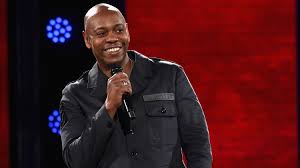HBO Max is removing Dave Chapelle’s “Chappelle’s Show” from their streaming service at the end of 2020. Surprisingly, it doesn’t come due to urging from the general public in the name of political correctness, but from Chapelle himself. The chief content officer of HBO and HBO Max, Casey Bloys, was tightlipped regarding the reasoning behind the comedian’s request, explaining, “I won’t get into it, but it’s very clear that it’s a very unique and specific and emotional issue he’s got.”
However, this is not the first time Chapelle has requested for his show to be removed from a streaming service. In November of 2020, the sketch comedy show was removed from Netflix. Chapelle explains that the show, which ran from 2003 to 2006, is owned by ViacomCBS. Because he had signed a contract all those years ago, ViacomCBS is not legally obligated to compensate Chapelle for any profit they receive from allowing this series, which was created and executive produced by Chapelle, to be played on streaming services. In a stand-up gig, Chapelle recounts this story and asks his audience, “But is that right? I didn’t think so either.”
Chapelle isn’t the first to be exploited by the entertainment industry, and he won’t be the last. This culture of exploiting creators extends to all branches of art, from music to fashion, among other things. The music industry in particular tends to make headlines with high profile legal issues when successful artists realize that the contracts they signed when they were just starting out rarely work in their favor and fight back against the industry. For example, artist Frank Ocean released a visual album to fulfill his two album contract with record label Def Jam Records. In doing so, he is able to leave the label and their seven-year-long “bad marriage,” and retain ownership of his records.
Another case, perhaps more well-known, is singer Taylor Swift’s battle with record label Big Machine Records, who released an album comprised of old live performances after she had already left the label. In Swift’s words herself, “This just happened to me without my approval, consultation or consent. After I was denied the chance to purchase my music outright, my entire catalog was sold to Scooter Braun’s Ithaca Holdings in a deal that I’m told was funded by the Soros family, 23 Capital and that Carlyle Group. Yet, to this day, none of these investors have bothered to contact me or my team directly — to perform their due diligence on their investment. On their investment in me. To ask how I might feel about the new owner of my art, the music I wrote, the videos I created, photos of me, my handwriting, my album designs.” This sounds awfully similar to Chapelle’s case. There must be a better way to guarantee that these creators are fairly compensated for their work. Hopefully these artists are paving the way for future generations when it comes to advocating for such things and redesign the entertainment industry in such a way that is less exploitative of artists.



I really enjoyed reading this post, personally I feel that artist should have the rights to their own material especially if it’s created, produced, written, directed by that said individual. I think artists personally don’t realize what they’re getting into when they sign into a record label or to a TV conglomerate, so what ends up happening is that this naïve new Hollywood star in reality it’s just being subcontracts in their face without really taking the time to read their contracts as well as not knowing some of the laws that business pertains to when it comes to receiving compensation for them producing a good
It is quite absurd to me that these companies will use contracts in order to basically enslave who ever they are signing on. It does not make sense to me at an ethical level because these artists put their heart and soul into their work, yet most of them do not have full rights to all of their content or even a majority of it. I definitely understand that money is the main reason why this happens, but it goes to show what a lot of these labels truly care about and where their priorities stand. Dave Chapelle, Frank Ocean, and Taylor Swift are definitely paving the way for future generations to come. Now that they have spoke up against it and in Frank’s case found a loophole, many others will follow in their footsteps and hopefully create the change that needs to be created.